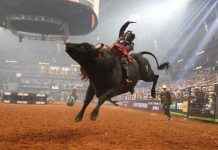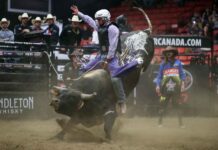Can a Genie Grant Bud Light’s Wish to Return to Tops Sales?
After a difficult year that saw a 30% drop in sales, Bud Light, the iconic light beer brand, is pinning its hopes on Super Bowl 2024 to jumpstart a much-needed comeback. Analysts cite a combination of factors, including marketing missteps and evolving consumer tastes, as contributors to the recent decline.
The company states, “Super Bowl LVIII is here and Bud Light, the Official Beer Sponsor of the NFL, returns to the biggest weekend of the NFL season with a brand-new commercial that brings the magic and promises an “Easy Night Out” for 21+ fans everywhere.
“The spot introduces a brand-new character, the Bud Light Genie, who makes a night out with friends easy to enjoy. It also features a star-studded cast spanning across the key passion points for the brand – football, music and combat sports – including NFL Hall of Famer Peyton Manning, singer and rapper Post Malone, and UFC CEO Dana White”.
“This year, we’re unleashing the Bud Light Genie and all his magic on Super Bowl LVIII, just in time for NFL fans to crack open a Bud Light and join in on the fun of an ‘Easy Night Out’,” said Todd Allen, Vice President of Marketing for Bud Light. “And we’re bringing that magic from the screen straight to Vegas this year, with epic experiences and unparalleled access for our fans, including custom Super Bowl LVIII packaging in Vegas and a once-in-a-lifetime concert with Zach Bryan and Leon Bridges.”
What Happened?
In 2023, Bud Light faced a boycott and backlash over its partnership with transgender influencer Dylan Mulvaney. This marketing campaign alienated conservative consumers, impacting sales negatively. Additionally, Bud Light’s core brand identity of humour and laid-back vibes have become muddled over time. Recent attempts to tap into social issues with campaigns like “The Consent Label” were seen as inauthentic and misaligned with their audience.
Bud Light saw several celebrities take a hard shot at the company. Kid Rock and American musician who has taken increasingly conservative political viewpoints posted a video shooting up cases of Bud Light.
Another musician, Travis Tritt announced he was banning all Anheuser-Busch products from his tour rider and voiced support for the boycott.
Sales Slide Spurs Aggressive Strategy
With much on the line, Bud Light is turning to its Super Bowl tradition. Its strategy emphasizes a return to light-hearted, crowd-pleasing humour, in contrast to recent, more socially conscious campaigns that faced backlash. Anheuser-Busch InBev, Bud Light’s parent company, plans to purchase prime commercial slots featuring its new ‘Bud Light Genie’ character granting playful wishes.
A Return to Light-Hearted Humour
“We recognize the need to reconnect with our core audience,” stated Alissa Heinerscheid, Vice President of Marketing for Bud Light. “While highlighting social issues is important, Bud Light wants to reclaim its space as the ultimate drink for celebrations and good times. The Genie embodies that fun-loving spirit.”
Consumers likely can remember past Bud Light successes.
They include, “Spuds Mackenzie”: The adorable Bull Terrier became the mascot for Bud Light in the 80s. Surrounded by adoring women, “The Original Party Animal” captured a carefree vibe that cemented the brand’s playful image.
The brand never took itself too serious and used light humour in their ads and that resonated with its core consumer base.
Was Environmental, Social and Governance (ESG) a Disaster for Bud Light?
Bud Light and ESG (Environmental, Social, and Governance) have a complex and controversial relationship. Here’s a breakdown of the situation:
ESG Initiatives
Anheuser-Busch InBev, Bud Light’s parent company, does promote certain ESG initiatives:
- Environment: They have sustainability goals related to water conservation, renewable energy, and reducing greenhouse gas emissions in their supply chain.
- Social: They have programs promoting responsible drinking, and some marketing campaigns focused on diversity and inclusion, such as featuring Dylan Mulvaney, a transgender influencer.
Controversy and Backlash
The backlash surrounding Bud Light’s ESG efforts stems mainly from the perceived clash between their “traditional” branding and recent social awareness campaigns:
- Alienating Core Audience: Some consumers felt their more lighthearted brand identity (think Super Bowl ads focused on humour) was at odds with Bud Light’s ucampaigns addressing social issues. This led to accusations of insincerity and “woke-washing.”
- Conservative Boycott: The Dylan Mulvaney campaign particularly caused a rift, leading to boycotts and calls for avoiding Bud Light by some conservative figures and outlets.
- ESG Criticism: The controversy is tied to a larger debate about ESG as a concept. Some feel ESG metrics create politicized investing, or don’t effectively measure a company’s true impact.
The Impact
- Sales Decline: While it’s difficult to isolate the sole cause, the ESG-related controversy coincided with a significant sales decline for Bud Light.
- Brand image: The company risked alienating parts of its traditional consumer base with some of their ESG-linked social messaging.
- ESG in the Beer Industry: This example highlighted the challenges of implementing ESG within an industry like beer, where product consumption itself comes with ethical considerations (responsible drinking, etc.).
Can the Genie Grant Their Wishes?
The brand hopes its genie-themed campaign, full of celebrity cameos and over-the-top scenarios, will capture audience attention and recapture lost customers. Whether this move can reverse Bud Light’s downward trend remains to be seen.
While Super Bowl ad success isn’t a guarantee, it’s clear Bud Light is prepared to do all it takes to revive its former glory.







